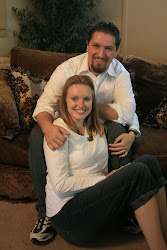Read Part 1 - Introduction.
Eid is three days long, and it technically starts tomorrow. So businesses were open yesterday and today. Tomorrow the Eid starts and will last until Thursday. Even though Eid starts tomorrow, it is still an important day for those who are on Hajj, or making the pilgrimage to the Grand Mosque (Masjid al Haram) in Mecca.
1. What People are Doing on Hajj | Ihram – Ritual Cleaning
 Before one can even enter the area of Mecca where the pilgrimage rituals take place, he must cleanse himself. Once the ritual cleaning is done, he must wear two white cloths (one around the waste, one around the shoulders) without stitching. Everyone must do this, and so everyone – regardless of social status – performs the hajj as an equal of everyone else. There is no discernable difference between a peasant and a president. Now that he has been cleansed, he can enter Mecca through the Miqat, the entry place into the area of the Hajj.
Before one can even enter the area of Mecca where the pilgrimage rituals take place, he must cleanse himself. Once the ritual cleaning is done, he must wear two white cloths (one around the waste, one around the shoulders) without stitching. Everyone must do this, and so everyone – regardless of social status – performs the hajj as an equal of everyone else. There is no discernable difference between a peasant and a president. Now that he has been cleansed, he can enter Mecca through the Miqat, the entry place into the area of the Hajj. After entering Mecca, he will head to the Grand Mosque (where the Kabaa is kept) praying the Talbiyah:
Here I am at Thy service O Lord, here I am, here I am at Thy service and Thou hast no partners. Thine alone is All Praise and All Bounty, and Thine alone is The Sovereignty. Thou hast no partners.
After visiting the Grand Mosque, pilgrims will walk to a tent city called Mina, continuing to quote the Talbiyah prayer. From here, he will spend the night in meditation and prayer.
3. What People are doing here in Bahrain: I found out today that the Eid Al Adha is, among other things, for the purpose of honoring those who are on the Hajj. So as Muslims in Mecca start the Hajj tomorrow, so starts the Eid. Today there isn’t a whole lot going on. Tomorrow there won’t
2. The Beliefs: what are the beliefs that drive the rituals?
- To come before God, one must be clean
- God must be sought above all else, and we are His servants.
- We are slaves of God
4. Similarities and Differences to Christianity: This summer, I mentioned to a group of people that we (Christians/Americans and Muslims) share a lot of values. One person asked skeptically what I meant. And so we have here some examples of the convergence of beliefs:
- To come before God, one must be clean. This is central to those who follow Jesus. God is a Holy God, and He will not – cannot, even – tolerate unholiness in His presence. And so to go before Him, we must be cleansed of our sins. We must be absolved of the shame that we have brought upon ourselves. Where I differ from my Muslim friends is that my shame has been borne by Jesus Christ. As the perfect Son of God, He took the punishment for my own sin and has cleansed me. Having taken the free gift of Jesus’ cleansing, I am able to enter into God’s presence.
- All Praise and Honor Belong to God. God is Sovereign. How can any follower of Christ deny such a statement about God?
- We are servants of God. Romans 6:18 “You have been set free from sin and have become slaves to righteousness”. Through Jesus, we are no longer slaves to sin, but have been set apart (made holy) for the purpose of Righteousness. The name Abdulla (a common name in Bahrain) means “Slave of God”. We are set apart for God.
- One of the differences is that Jesus redefined how His followers do worship. Jews also had one particular place in which to worship God - the temple in Jerusalem. However, when talking to the Woman at the Well, Jesus says that we will worship in spirit and in truth, and that physical location does not matter.
- To clarify the point above: Muslims do not need to go on Hajj to worship God. However, it is an act required by all those who have the means - physically and financially.





No comments:
Post a Comment